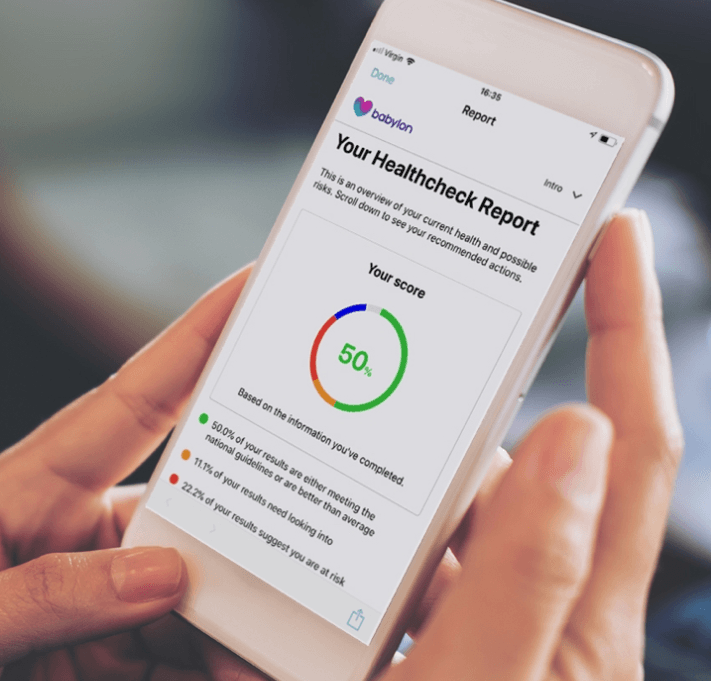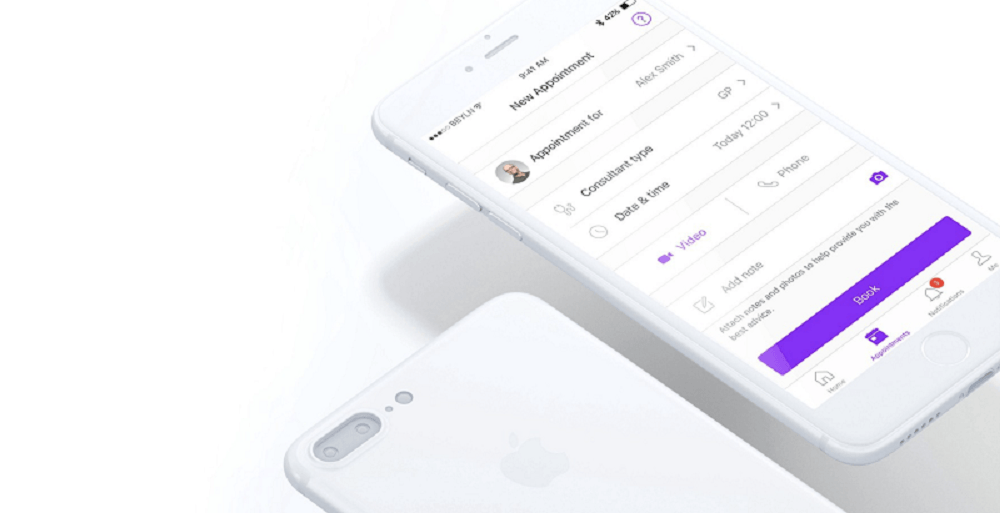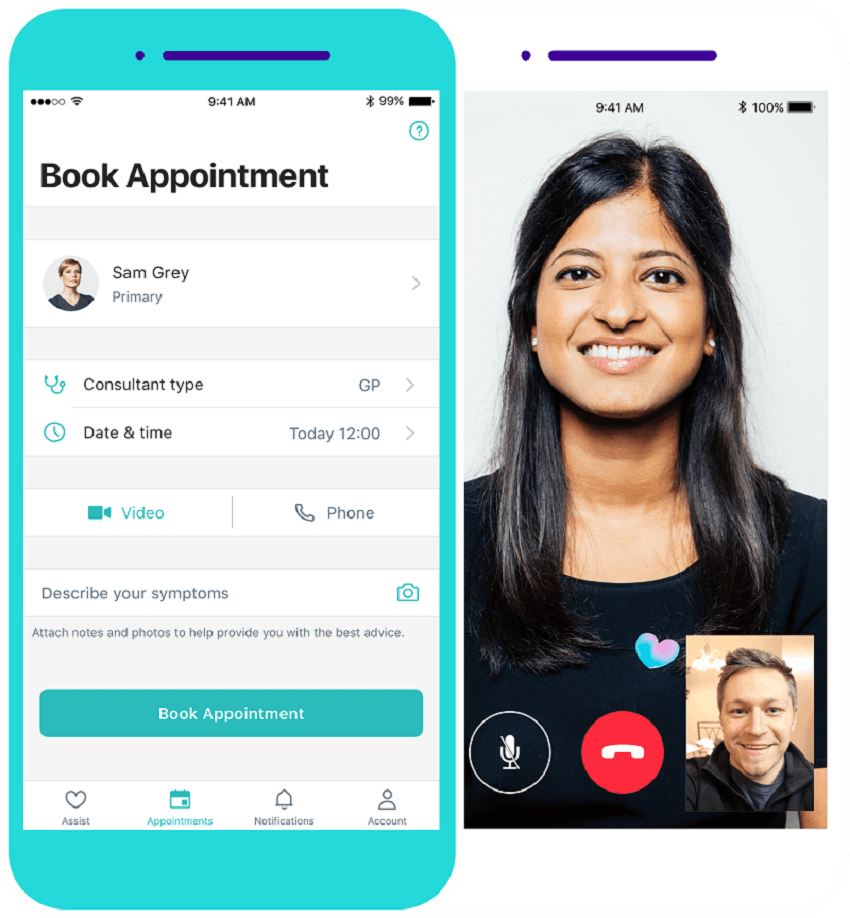
Babylon Health uses AI-powered features to helps patients understand how their lifestyle choices impact their mental and physical health, as well as suggesting changes for “healthier living”.
The biggest of these is the healthtech GP at Hand service that provides NHS patients fast access to a quick phone or video consultations with GPs when they’re feeling unwell.
As well as being more convenient for patients, digital appointments are helping to free up doctors’ time and NHS resources to help more patients.
Speaking at London Tech Week, Dr Keith Grimes, Babylon’s Health clinical innovation director, said: “Here, we believe it is possible to make healthcare accessible and affordable to everyone on earth – it’s what brought me to the company.
“But to do this is – is a very significant challenge – and to achieve this requires the use of AI to provide health care that everyone requires across the earth.
“We are not going to achieve this with human resource alone.
“We’ve assembled a kind of ‘tiered approach’ on how to do this with our AI health services to suggest changes for healthier living.”

What is Babylon Health’s circle of care for GP at hand?
The NHS service GP At Hand, which allows patients to have GP appointments 24/7 through video calls, operates as one of Britain’s biggest primary care clinics with a practice based in Fulham.
The UK health minister Matt Hancock has called the service a model for transforming healthcare with technology, even claiming to use the service himself.
To become a continual point of contact throughout a patient’s entire health life cycle is an ambition the company aims to achieve using three features to provide a comprehensive healthcare service online.
In order to allow people to manage their health on an ongoing basis, the Babylon app uses AI to provide a triage system to reduce the time that patients wait for an appointment and have access to instant medical information.
Dr Grimes said: “We train AI to build towards the circle of care – as we assembled a framework by which we try and assure we deliver the highest levels of safety and healthcare quality.
“Circle of health is the kind of foundation to how we approach things with the patient and the clients at the same time.”
He illustrated a scenario for simple cases using symptoms of acute illnesses such as coughs and headaches to which, Babylon’s app and AI chat-bot can carry out the initial triage and basic diagnosis for patients to get quick results.
Dr Grimes explained: “A triage outcome gives a person indication about where they might be able to find healthcare next.
“Moving towards diagnosis – in this case – support for diagnosis conditions, you can actually look at the clinical reports coming from the chat bot where the person can speak virtually via telemedicine or face to face.”

How Babylon Health’s AI Natural Language Processor works
Moreover, Babylon’s AI was also tested against seven “experienced” primary care doctors to determine its ability to accurately diagnose a wider range of health conditions.
To help bridge the gap between patients and AI, the app is powered by a Natural Language Processor (NLP).
NLP helps computers interpret, understand, and then use everyday human language and language patterns to break down speech and text down into shorter components to interpret and understand what each individual component means.
This is linked to the occurrence of medical terms to Babylon’s Knowledge Graph, which it claims to be one of the largest structured medical knowledge bases in the world.
It records human knowledge on modern medicine and is encoded for machines that is used as the basis for Babylon’s intelligent components to communicate to each other.
“When looking at peoples healthcare, you also want to look at their wealth and healthcare.
“For that, we have assessments and a health product called healthchecker in our app that uses a chatbot interface to take in information and then use evidence based questionnaires to establish that person’s risk of developing 20 different illnesses.”
This feature enables the app understand what factors from the patient’s lifestyle are contributing towards the risk of developing their diagnosed disease.
“We believe that we’ll be able to help people understand more on how to identify at an early point when they might be developing illness again – thereby turning a thousand dollar problem in to a ten dollar problem – this is our circle of care,” added Dr Grimes.






